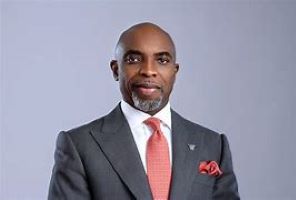News
CBN Board Nominee Declines Tinubu’s Appointment.

The CBN Board Nominee Declines Tinubu’s Appointment.
The nomination process for the Central Bank of Nigeria (CBN) board of directors has taken an unexpected turn with the rejection of Urum Kalu Eke, the nominee from the Southeast. The nuances of the appointment process and the dynamics at work were illuminated when this decision came to light during the Senate’s confirmation of the appointments of four other nominees.
The revelation was made by Senator Adetokunbo Abiru, the Chairman of the Senate Committee on Banking, Insurance, and Other Financial Institutions, who presented the report of the committee’s screening of the nominees. It was disclosed that while four nominees—Mr. Robert Agbede, Mr. Ado Yakubu Wanka, Prof. Murtala Sabo Sagagi, and Mrs. Muslimat Olanike Aliyu—appeared before the committee and successfully demonstrated their suitability for the positions, Eke was notably absent.
During the Senate session, Senator Orji Uzor Kalu, a member of the Committee representing APC Abia North, intervened to clarify Eke’s absence. Kalu revealed that Eke, a constituent of his, had communicated his decision to decline the appointment due to potential conflicts of interest. Eke, serving as a consultant to the World Bank and other international financial institutions, expressed concerns about balancing his existing commitments with the responsibilities of a CBN director.
Kalu’s explanation provided valuable insight into Eke’s rationale, highlighting the complexities involved in navigating multiple professional roles and obligations. The decision to decline the appointment underscored Eke’s commitment to ethical standards and avoidance of potential conflicts that could compromise his effectiveness as a CBN board member.
In his earlier remarks, Senator Abiru commended all the nominees for their profound understanding of economic knowledge and policies, noting the absence of any petitions against them. Following a careful assessment of the credentials and skills of the four nominees who took part in the screening process, the Senate, chaired by Deputy President Senator Jibrin Barau, subsequently confirmed their appointments.
The incident involving Urum Kalu Eke serves as a reminder of the importance of transparency, integrity, and ethical considerations in public appointments. It underscores the significance of upholding professional standards and avoiding conflicts of interest that could undermine the credibility and effectiveness of individuals in key roles within financial institutions.
As the CBN continues its mandate of ensuring monetary stability and fostering economic growth, the selection of board members remains a critical aspect of governance. The episode involving Eke’s decision not only sheds light on the complexities of balancing multiple professional engagements but also emphasizes the need for individuals to prioritize ethical conduct and accountability in public service.
In conclusion, the nomination saga surrounding Urum Kalu Eke’s declination of the CBN board appointment serves as a compelling narrative of the intricate dynamics within the realm of financial governance. It underscores the importance of upholding ethical standards, transparency, and professionalism in public appointments, reaffirming the critical role of integrity in shaping effective leadership within financial institutions.










